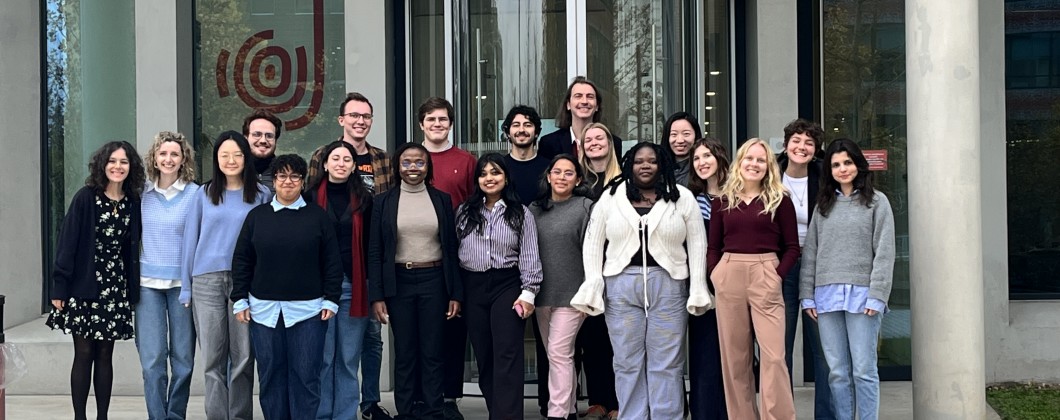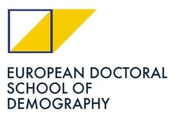About EDSD

About EDSD
The European Doctoral School of Demography (EDSD) is the flagship training program of the European Association for Population Studies (EAPS). The program was initiated by EAPS and operates under EAPS' auspices.
EDSD is an eleven-month, sponsored program that is offered every year aiming to provide students with an appropriate high-level education in demography to pursue their doctoral studies. Students will acquire a solid knowledge base on the causes and consequences of demographic change, population data, statistical and mathematical demography, as well as modeling, simulation and forecasting. Many of the school’s courses concentrate on strengthening the quantitative and programming skills of the students. The language of the school is English and each cohort usually consists of 12 to 20 students.
Current location of the school
Over the years, EDSD has been held at several universities and research institutes. In the 2025/26 academic year, the School is being held at two different locations. The preparatory courses (from early September to late October 2025) were offered at the Max Planck Institute for Demographic Research in Rostock, Germany. The core courses (from November 2025 until end of July 2026) are being held at the French National Institute for Demographic Studies (INED) at Campus Condorcet, in Aubervilliers, Paris, France.
The location of the school for the academic year 2026-2027
The preparatory courses (from early September to late October 2026) will be offered at the Max Planck Institute for Demographic Research in Rostock, Germany. The core courses (from November 2026 until end of July 2027) will be held at the SGH Warsaw School of Economics, Poland. Students have to organize their own accommodation but can be advised by the EDSD staff.
EDSD is not an online programme, and students are expected to participate in person.

Full fellowships
EDSD does not charge any fees. A limited number of scholarships are available to cover accommodation and living expenses, estimated at €1,650 to €1,700 per month during the 2026/2027 academic year. These scholarships are provided by several European research institutes and universities that operate the EDSD and are awarded to students who have been accepted into the program.
Qualified applicants may also be admitted if they can show that they have an institutional sponsor (research institute or university that guarantees to cover the student's fellowship).
Our participant Institutions are Max Planck Institute for Demographic Research, Interdisciplinary Centre on Population Dynamics, Centre for Demographic Studies, French Institute of Demographic Studies, Netherlands Interdisciplinary Demographic Institute, University of Rome, Sapienza, Lund University, London School of Hygiene and Tropical Medicine, Vienna Institute of Demography, Warsaw School of Economics, University of Groningen, University of Rostock, Tallinn University, Stockholm University, University of Southampton, Catholic University of Louvain, London School of Economics.
Certificate
Successful completion of the School results in a European Research Certificate of Demography provided under the auspices of the European Association for Population Studies (EAPS).
Preparatory courses in Rostock
The courses in Rostock consist of (1) Measures and Models in Demography, (2) Basic Mathematics for Demographers, (3) Basic Statistics for Demographers, and (4) Computer Programming for Demographers.
The aim of the preparatory courses is to prepare the students for the core courses at SGH in Warsaw. More information about these preparatory courses can be found here.
Core courses in Warsaw
The program at SGH consists of seven courses on (1) Population Data Science, (2) Demographic Theories, (3) Statistical Demography, (4) Population Challenges, (5) Formal Demography and (6) Simulation and Forecasting, (7) Thesis courses. In addition, computer, graphic, presentation, and writing skills are taught. Students devote 20% of their time to thesis research. Students will be also offered the opportunity to attend research seminars.
Contact information: edsd@sgh.waw.pl
How to Apply
The application window for the European Doctoral School of Demography (EDSD) Programme 2026-2027 opens on February 6th! The deadline to apply is March 27th, 2026 at 12 PM (noon) and the program begins on September 1st, 2026. Results of the successful candidates will be announced in mid-May 2026.
To be eligible for admission, applicants should hold a Master's degree in demography, mathematics, statistics, public health, economics, sociology, geography, biology, computer science, history, or a related field. Master's students may also apply, but they must have completed their degree and possess the official title before the start of the program. At the time of application, students may or may not be enrolled in a PhD program. Enrollment in a PhD program at one of the participating institutes is not required. Participants who are not enrolled in a PhD program are expected to enroll in one during or after the EDSD program.
Curious minds with a deep interest in demography and population development, whether of humans or species, and a proven competence in English are ideal candidates for the program. European Union citizens must have a valid European Health Insurance Card (EHIC) for the duration of the program. Non-EU citizens selected for the program must apply for a student visa at the Polish embassy in their home country.
Download the call for applications for the 2026-2027 cohort
